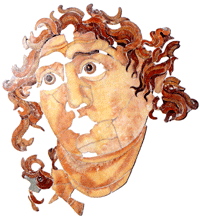Three years and a day after the second American invasion of Iraq and I’m still not shocked, still not awed. I knew it. We all knew it, though these days I’m less and less sure whom I mean when I say we.
“I told you so” being an insufficient response to this anniversary, and in an effort to be constructive, I recommend these books, both of which provide profound historical insight into the predictable patterns of America’s present predicament.
Feeling an ominous foreshadowing of the months leading up to the invasion I read Stanley Karnow’s Vietnam: A History, The First Complete Account of Vietnam at War (NY: Viking, 1983). Karnow was a foreign correspondent in Vietnam for two decades beginning in 1959 while the French were in Indochina. Here’s but one salient fact culled from Karnow’s brilliantly written 670 pages:
“During the thirteenth century, the Mongol emperor Kublai Khan invaded Vietnam, three times, pushing south to control the spice routes of the Indonesian archipelago. The Vietnamese, commanded by the illustrious Tran Hung Dao, repulsed each offensive. Like outnumbered Vietnamese officers before and since, he relied on mobile methods of warfare, abandoning the cities, avoiding frontal attacks. and harassing his enemies until, confused and exhausted, they were ripe for final attack. In the last great battle, which took place in the Red River valley in 1287, the Vietnamese routed three hundred thousand Mongol troops. In a victory poem, Vietnamese general affirmed that ‘this ancient land shall liver forever.’ Seven centuries later, the Vietminh commander Vo Nguyn Giap evoked Tran Hung Doa’s memory as he launched an operation against the French in the same area.” (101)
America doesn’t do much research into the history of the nations it invades. Remember that surreal scene in Apocalypse Now where the American soldiers have dinner at the French colonist’s house? America would also do well to consider the failure-rates of previous invaders. In preparation for the invasion of Iraq a bit of reading up on the British Empire in the Middle East would have been wise.
I am quite sure that Donald Rumsfeld has read Edward Gibbon’s The Decline and Fall of the Roman Empire. All those military guys have to at some point. But Rumsfeld is old and America is young and neither is paying attention to patterns of history. Read the entire eight volumes of The Decline and Fall replacing the word Rome with the word America and tell me how many more years we are going to be marking this anniversary. Yes, I mean “we”. Here are but a few passages:
“Against internal enemies, whose desperate insurrections had more than once reduced the republic to the brink of destruction, the most severe regulations and the most cruel treatment seemed almost justified by the great law of self-preservation.” (63) [Read: Homeland Security]
“The long peace and uniform government of the Romans introduced a slow and secret poison into the vitals of the empire. The minds of men were gradually reduced to the same level, the fire of genius was extinguished, and even the military spirit evaporated… [The Citizens] received laws and governors from the will of their sovereign and trusted for their defence to a mercenary army… and sank into the languid indifference of private life.” (82) [Read: Complacency]
“The decline of Rome was the natural and inevitable effect of immoderate greatness. Prosperity ripened the principle of decay; the causes of destruction multiplied with the extent of conquest; and as soon as time or accident had removed the artificial supports, the stupendous fabric yielded to the pressure of its own weight. The story of its ruin is simple and obvious; and instead of inquiring why the Roman Empire was destroyed, we should rather be surprised that it had subsisted so long.” (621) [Read: The bigger they are, the harder they fall]
“As the happiness of a future life is the great object of religion, we may hear without surprise of scandal that the introduction, or at least the abuse, of Christianity had some influence of the decline and fall of the Roman Empire.” (622) [Read: The rise of the religions right]
. . . . .

